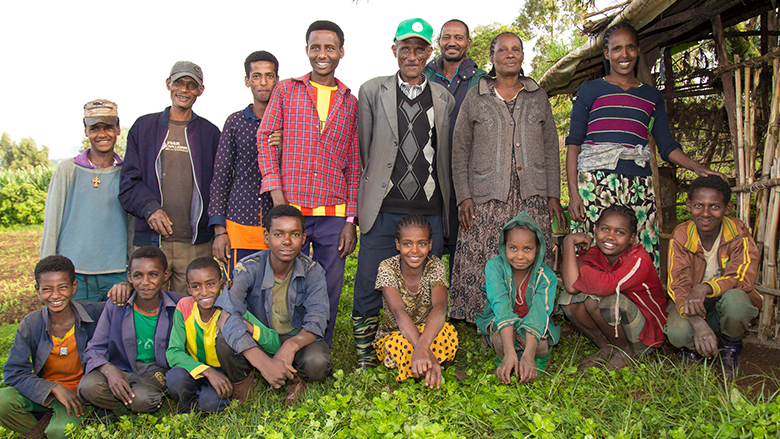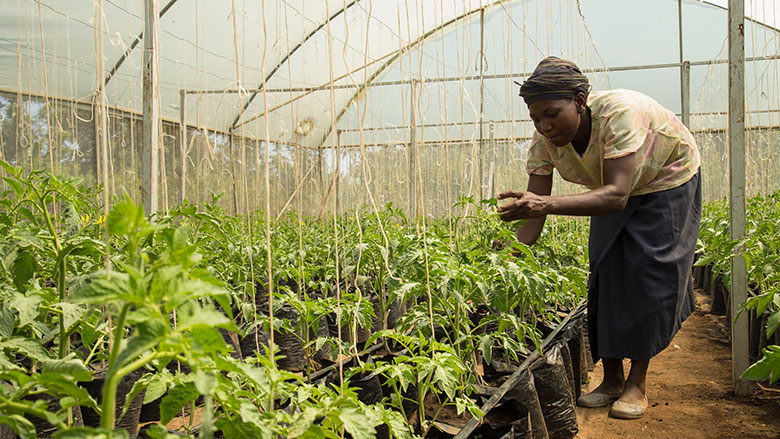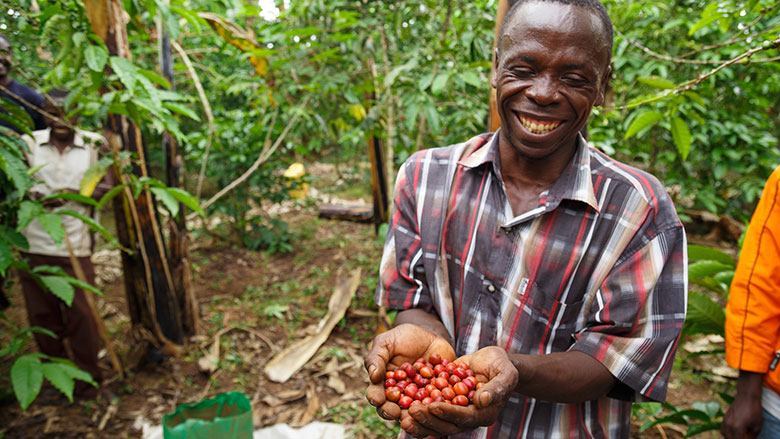Fikadu Garomessa’s verdant maize and teff farm—which stretches across the slopes of Liben Gaammo Village, Chelia woreda-- makes for a postcard worthy view. But the long-time farmer isn’t interested in soaking in the vista. Instead, he kneels low to the ground and digs his hands into the earth. Fikadu is interested in soil—both in knowing more about it, and in sharing what he’s learned so far.
He’s not alone.
Since 2012, soil researchers have fanned out across Ethiopia’s countryside to collect data on soil types, soil fertility and agro-ecological conditions. Their findings are being added to the Ethiopian Soil Information System or EthioSIS, a comprehensive catalogue of national soil data. EthioSIS, which is managed by the Government of Ethiopia's Agricultural Transformation Agency and funded by the World Bank-supported Agriculture Growth Program, uses satellite technology and extensive soil sampling to produce high resolution soil maps for each region. To date, 438 districts or woredas—approximately 63% of the country’s agricultural woredas—have been mapped, including in the Amhara and Oromia regions.
Actionable data for climate-smart agriculture
For decades, Ethiopia’s farmers have relied on general recommendations regarding fertilizers and farming practices that had little regard for local conditions. Harvest shortfalls, excessive and inappropriate use of chemical fertilizers limited to urea and DAP, and fertilizer runoff occurred as a result.
EthioSIS aims to change that, by providing farmers with localized, actionable data for making climate-smart farming decisions that boost productivity, improve resilience and also leave a lower environmental footprint. To support farmers in applying more customized fertilizer mixes, five fertilizer blending plants with the capacity to produce over 30,000 metric tons have also been established in Ethiopia’s biggest agriculture growing areas, including Amhara, Oromia and Tigray. In addition, more than five thousand extension workers have been trained in compost preparation and soil fertility improvement techniques so that they can pass on their knowledge to farmers across the country.
Access to soil information could be transformative for millions of people—and even the country as a whole. “Over 80 percent of Ethiopia’s labor force is engaged in the agriculture sector,” says Andrew Goodland, Program Leader for the World Bank’s Agriculture Global Practice in Ethiopia. “By providing millions of farmers with the opportunity to make more climate-smart farming decisions, the project’s contribution to the Ethiopian government’s goal of becoming a green economy by 2025 could be significant.”



